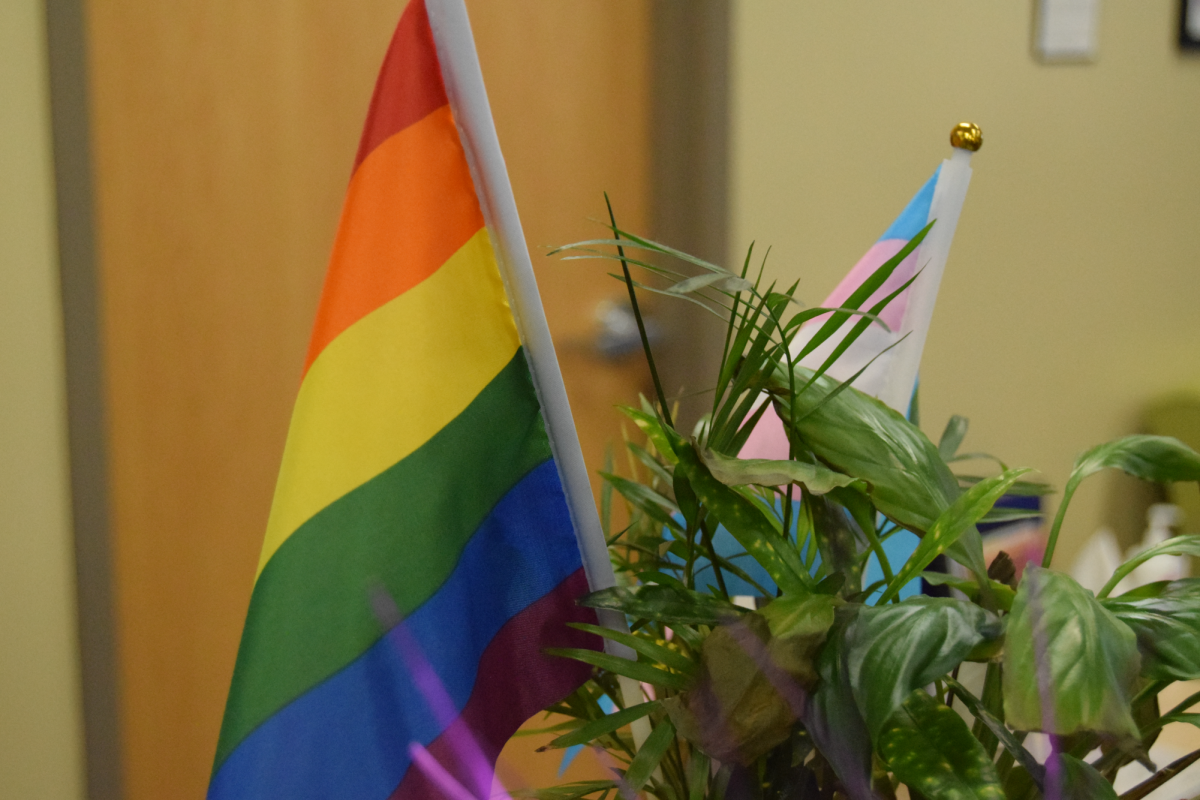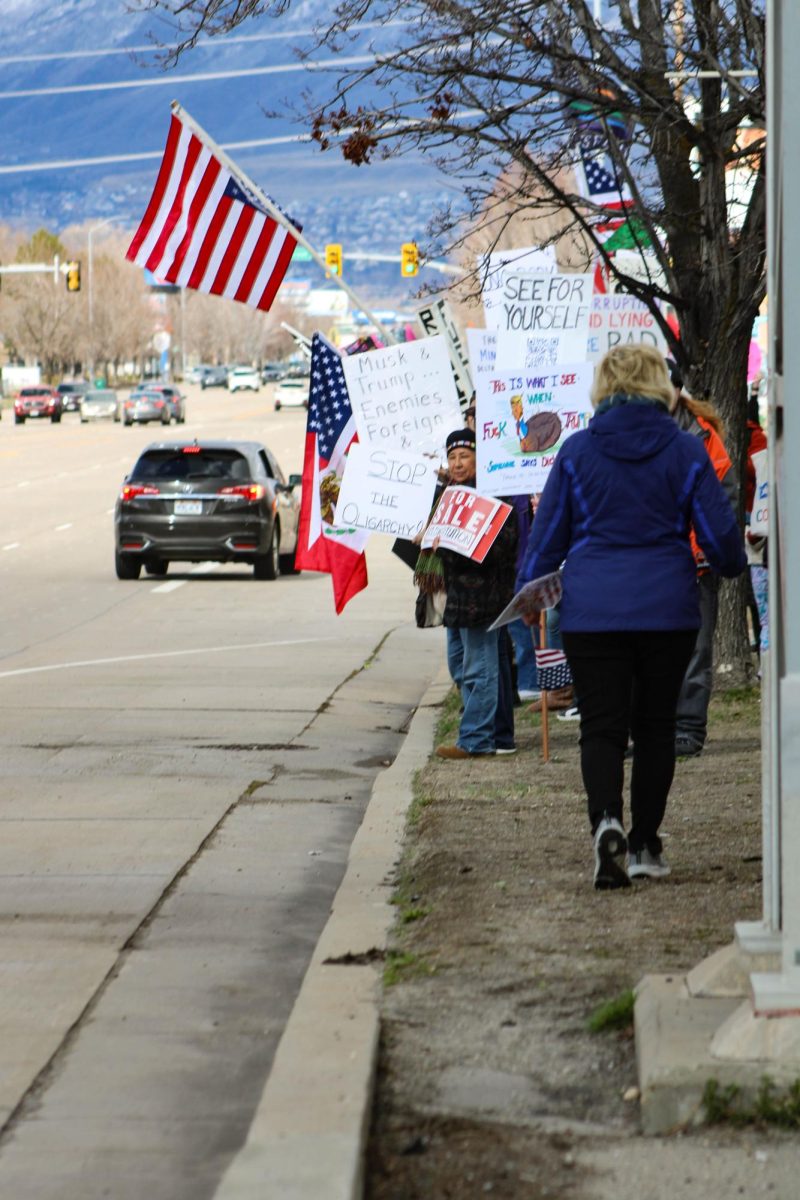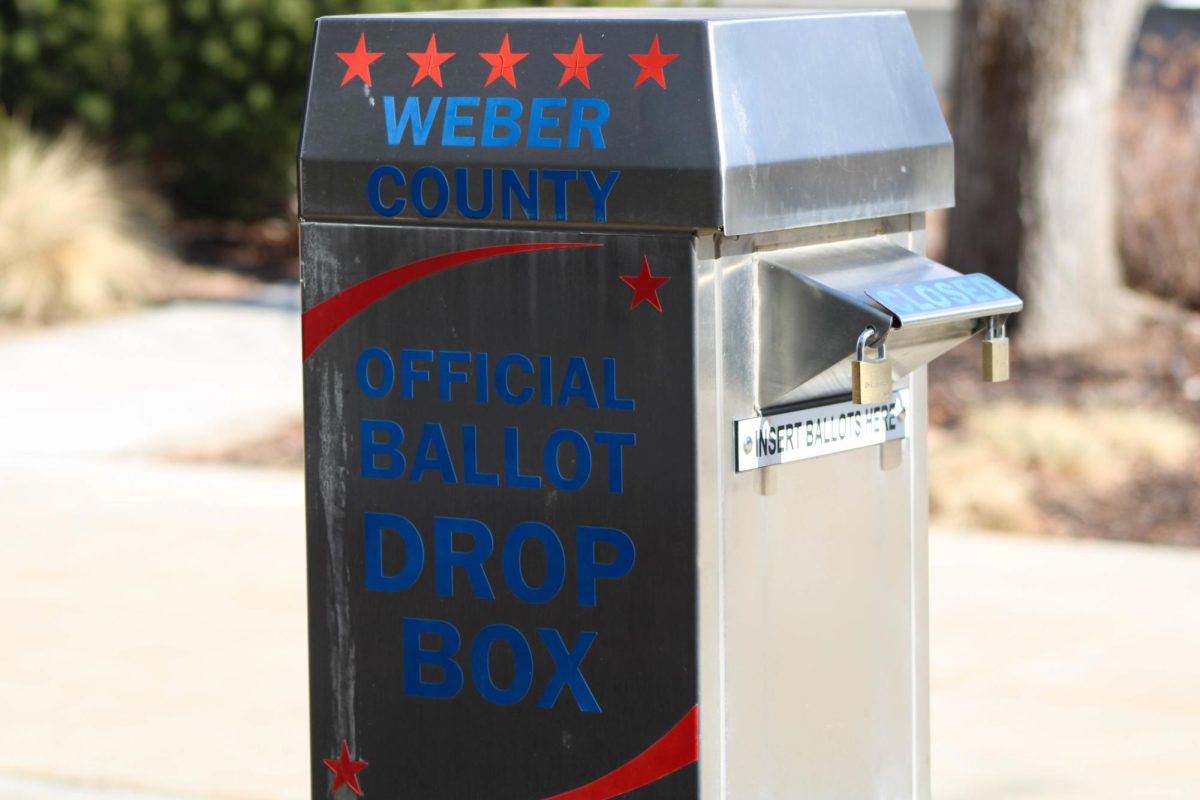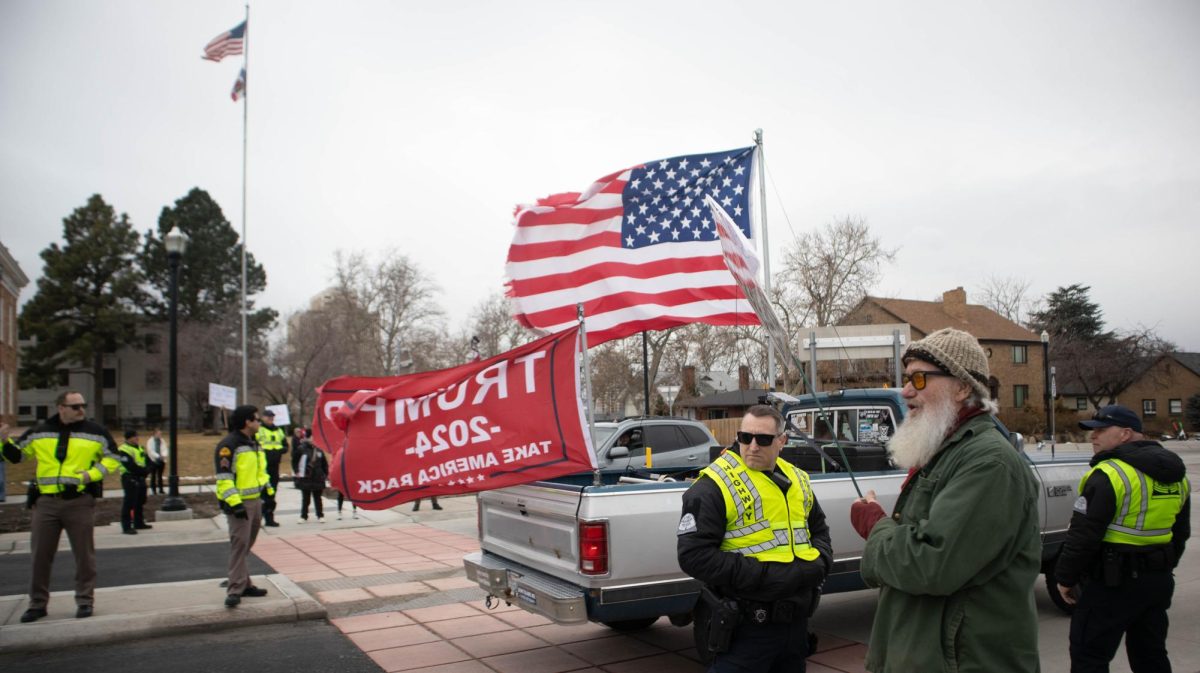In his presentation “Civic Charity and The Constitution,” Federal Judge Thomas Griffith shared his own experiences and the experiences of the attendees of the Constitutional Convention at Philadelphia as examples of ways Americans can overcome the tribalism facing American politics today.

President George W. Bush appointed Griffith to the U.S. Court of Appeals for the District of Columbia Circuit, where he currently serves.
His legal and political career has provided him with the opportunity to work with legislators on both sides of the aisle, allowing him to offer a multifaceted perspective on working against political tribalism he sees rampant in America today.
Griffith grew up idolizing Robert F. Kennedy.
As a teenager, he requested — and eventually received — an internship with his Washington, D.C. neighbor, Democratic Senator Mo Udall.
Speaking to Weber State University students and faculty in Lindquist Hall on Nov. 14, Griffith said that as his legal career advanced, he became a Republican.
“I became a Republican when I started to read,” Griffith said jokingly, eliciting laughter from the audience. “I currently have no political affiliation.”
Griffith prefaced his presentation with a warning to those in attendance.
“We just do not know what a democracy looks like when you drain all trust out of the system,” Griffith said. “During my lifetime, the United States has never faced a period of greater difficulty. It has never looked darker than it does right now.”
He recalled growing up during the height of the Cold War with its looming threat of nuclear apocalypse. He also recounted the national tragedies of the assassinations of John F. Kennedy and Dr. Martin Luther King, Jr. and the ensuing race riots.
“I went to high school with kids whose parents went to jail for Watergate,” Griffith said. “I marched in the streets against the war in Vietnam. My point is, I have seen a thing or two. What you and I are facing right now is more of an existential threat to our country than anything else.”
According to Griffith, the most important thing the American people can do right now is to be more civil towards each other.

“Civility establishes limits, so we do not treat opponents as enemies,” Griffith said. “Civility helps prevent us from the temptation in politics to demonize and dehumanize those who hold views different from our own.”
Griffith does not pretend that civility will eliminate disagreement.
He then shifted his discourse to the principle of civic charity and spoke about the history of the Philadelphia Convention.
The Articles of Confederation proved inadequate for the fledgling country, so the newly-independent states sent delegates to Philadelphia to negotiate for something better.
In July of 1787, the Convention nearly failed.
“There was serious talk about ‘Let’s pack our bags and go home. We are too far apart,” Griffith said. “Six weeks later, it had worked. They had cobbled together a constitution.”
When George Washington presented the new document to the Continental Congress, he credited a “spirit of amity and mutual deference” to its creation.
“How did they do it?” Griffith asked. “There are several ideas.”
First, a lack of adequate housing forced the delegates to live together. They worked Monday through Saturday.
After working most of the day together in Independence Hall, the delegates would adjourn.
Due to a limited number of dining establishments, the delegates would often dine together as well, followed by a round of drinks at a local tavern.
This shared space led to the formation of “dinner groups,” featuring delegates from different states informally interacting with each other.
“It was these random collections of folks from different places socializing,” Griffith said. “Benjamin Franklin, who lived in Philadelphia, would also invite everybody over for the occasional party.”
Second, the rules of the Convention mandated that delegates had to attend meetings.
“You could not just stay home, sleep in and use Facebook or Instagram,” Griffith said. “You had to be engaged and show up.”
When a delegate had the floor, Convention rules prohibited other delegates from speaking or reading.
The Convention did not keep a record of who voted in favor of or against motions.
This allowed delegates to vote without fear of reprisal and encouraged them to be free to change their minds on the issue.
“Back then, nobody could run out to the media and say, ‘Oh! You are flip-flopping,'” Griffith said. “Flip-flopping was encouraged. They wanted delegates to be open to ideas.”
On the defining issue of state representation, Griffith claims that one principle was especially crucial in determining the success of the Convention.

“The delegates were determined to compromise before they even knew what the terms of the compromise would be,” Griffith said. “They also created a group of nine moderates to resolve the issue. Moderate seems like a dirty word these days.”
Griffith also believes that liberty, alone, was not the defining issue behind The Constitution.
“The most fundamental impulse that created the Constitution was not liberty,” Griffith said. “The most fundamental impulse was union. They wanted to make it work. That is what civic charity is.”
Griffith invited audience members to reach out to people who did not share the same political, religious or social views.
He also cautioned the audience against categorizing others as “Feeling the Bern” or “MAGA hat wearers.”
Griffith said being an involved and informed citizen requires study and engagement that goes beyond watching cable news networks.
“The heroes of America are heroes of unity,” Griffith said. “Liberty cannot flourish without a desire to unite. When you take an oath to defend the Constitution, you take an oath to not be an agent of division.”
WSU Political Science and Philosophy professor, Dr. Leah Murray, felt Griffith’s presentation was inspiring.
“We have to see the friend in — and not demonize — other people,” Murray said. “Naturally, we are group-oriented people. I hope students find someone who is not like them and chooses to become friends with them.”













